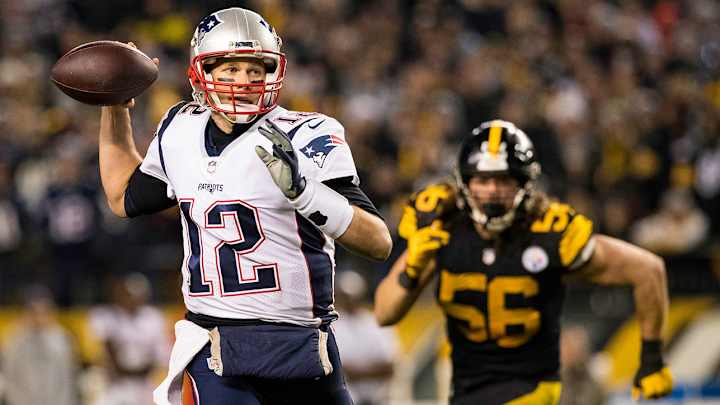How TV Networks' Requests Impact the Making of the NFL Schedule

“I would equate it to being six years old on Christmas morning,” Sunday Night Football executive producer Fred Gaudelli said, “You’re just waiting to see what you’re going to unwrap.” But instead of jumping out of bed and running towards a tree, Gaudelli waited at his desk Wednesday—pencil in hand—for a call from NFL scheduling czar Howard Katz. This year, Katz called around 4 p.m. Do you have a piece of paper handy, he asked. Of course, Gaudelli responded. Katz then proceeded to run through NBC’s 2019 primetime games, a low-key conclusion to the league and networks’ monthslong, high-stakes scheduling dance.
“In terms of impact to the next TV season, the release of the NFL schedule is probably as impactful as all the primetime upfront presentations put together,” FOX Sports’ head of research and strategy, Michael Mulvihill, said. The order and time of 256 games might only account for “a single-digit percentage” of the league’s year-to-year ratings variability, but “a change in our ratings one or two percent can have an eight-figure impact,” Mulvihill said.
Or, as NBCUniversal CEO Steve Burke told Gaudelli a few years ago, “This is one of the most important days of the year for Comcast. This schedule means so much for our company.”
If schedule release day is TV’s Christmas, then that makes Katz St. Nick—tasked with a job that sounds as difficult as visiting 823 chimneys per second. Before the Super Bowl, the four networks (CBS, ESPN, FOX, and NBC) give Katz team a list of the games they’d like to air. Of course, those lists are nearly identical. Those preferences are then used to generate over 60,000 possible schedules, with only 273 this year meeting a minimum viability threshold for consideration. Those are further whittled down based on TV’s requirements as much as logistical barriers and competitive reasons. As NFL director for broadcasting Blake Jones explained it, “We try to find the balance between a good television schedule and fair team schedule."
Somehow, they manage to make everyone happy—for a while at least. While NBC and ESPN both get phone calls from Katz, FOX and CBS representatives get a longer breakdown, given they carry a majority of the contests on their air. This year, each held onto their highest priority game: CBS, Chiefs at Patriots in an AFC Championship rematch and FOX, Cowboys at Patriots, as the two face off for just the third time since 2007.
FOX wound up with eight of its top 10 preferred games with key matchups like Cowboys-Bears and Steelers-Browns set for the network’s sophomore season of Thursday Night Football. CBS lost Steelers-Patriots, a late-season staple for the network in recent years, to the opening Sunday Night Football game, but Jones believes Chiefs-Pats could become that marquee December battle this year. CBS was also given Cowboys-Jets and Packers-Chargers, pleasing CBS Sports chairman Sean McManus.
ESPN received the first primetime appearance for both Odell Beckham Jr. as a Brown and Le’Veon Bell as a Jet when those teams play Week 2. It also has two Packers games for the first time in a decade, plus a late-season Colts vs. Saints game that ESPN programming lead Burke Magnus believes could become this year’s version of last year’s Chiefs-Rams thriller.
Happy to get Packers-Chiefs amidst another strong NBC slate, Gaudelli ended his call with Katz by thanking him for talking with the network throughout the process. The companies don’t have any right to grabbing or keeping specific games. In fact, a matchup like Jets-Browns bounced between networks over the course of the NFL’s many simulations. But the league still heavily weighs its partners’ input.
After getting off the phone, Gaudelli quickly typed the matchups into an email for Al Michaels, Cris Collinsworth, and Michele Tafoya. “Al was ecstatic to have four games in Los Angeles for the first time in his life,” Gaudelli said. Tafoya, meanwhile, was glad to see only two “winter jacket” games on the late-season schedule, though that could change as the result of SNF’s flex options.
At first, the networks only see their own games. Over the coming days, Jones said, the initial excitement about those matchups can start to wear off as negative feedback and questions roll in. But unlike Christmas, the NFL has a pretty strict no-return policy.
